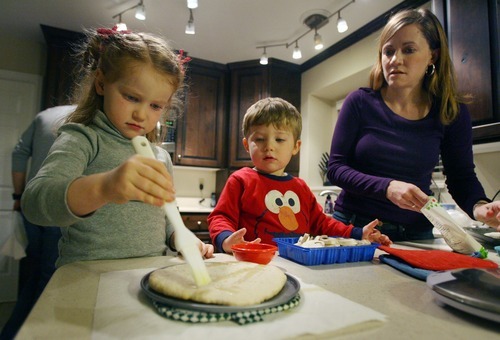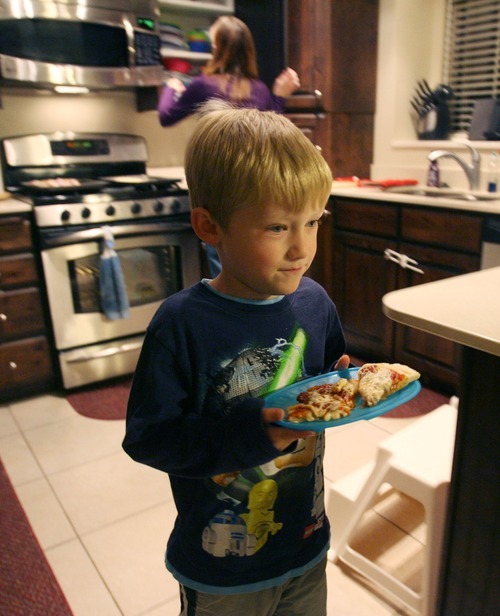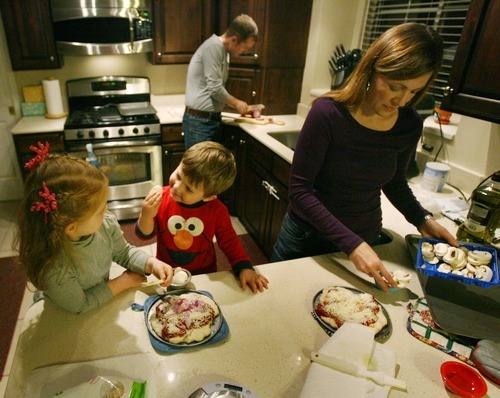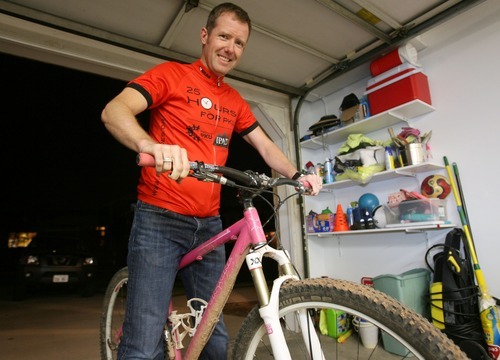This is an archived article that was published on sltrib.com in 2011, and information in the article may be outdated. It is provided only for personal research purposes and may not be reprinted.
It's a phone call she won't forget: One week after Amy Oliver's daughter was born, a nurse called to tell Oliver to get in her car and bring her baby to Primary Children's Medical Center — immediately.
The infant screening showed Claire has phenylketonuria, a rare metabolic disorder commonly known as PKU. Without a strict diet, Claire was at risk for neurological damage, including severe mental retardation.
The news was "devastating," Oliver recalled. But it has spurred both her and her husband, Brian, to reach out to families in a similar situation and advocate for research that could lead to a cure. Although Brian Oliver is an emergency-room physician, both were unfamiliar with PKU.
"It was probably the scariest time of my life," Amy Oliver said. "What did it mean for our daughter? What did it mean for our everyday life? ... Not having anyone to turn to or understand what we were going through was the hardest part."
Oliver launched the nonprofit Intermountain PKU and Allied Disorders Association (IPAD) in 2008 (two years before Apple released its popular tablet of the same name.) The group, a member of the National PKU Alliance, holds social events and seminars, such as a low-protein cooking class in October.
IPAD also has created information kits for families that include a scale for weighing food, a low-protein cookbook, a low-protein food list, lunch-size cooler and a calculator. Oliver delivers the kit in person to families who have just learned their baby has PKU.
"It puts a face on it," she said. "This is a person who knows exactly what they're dealing with."
The Olivers, who live in Millcreek Township, have three children. Luke, 7, does not have PKU, but both 4-year-old Claire and two-year-old Seth have the disorder, which is inherited and occurs in 1 in 10,000 to 20,000 births. About 14,500 people in the United States are living with PKU, according to the National PKU Alliance.
The disorder prevents the body from properly processing the amino acid phenylalanine, which is a building block of protein. A typical person with PKU can eat only 7 grams of protein per day (about 1 tablespoon), which is the amount found in one stick of string cheese, Oliver said. Her two kids eat a diet mainly of fruits and vegetables, homemade low-protein bread and a special medical formula that provides the other nutrients they need without the protein. Amy Oliver has to weigh every gram of food they eat.
"I have scraped mashed banana off the floor to weigh it so I don't count it for my kids, because they can only eat so much food a day," she said.
Brian Oliver, an avid mountain biker, recently used a 25-hour race in Hurricane to raise money for PKU research. He blogged about the strenuous event at pkuheroes.org and raised $5,000 in sponsorships. One friend pledged $7.25 an hour, or minimum wage, to push Oliver to complete the round-the-clock ride that happened Nov. 4-6 to coincide with the end of daylight saving time. In spite of freezing temperatures and strong winds, he came in fifth out of 24 solo cyclists, traveling 205 miles.
The Oliver family parked a motor home near the race course and offered Brian Oliver support throughout the race, including warm food and dry gloves. The kids would ring bells every time dad passed by (he made 16 laps on the track). Two-year-old Seth yelling "Go da-ya" offered extra motivation, Oliver said. And Claire was happy that her dad's bike is her favorite color, pink, Amy Oliver said.
Kourtney Post, a mother of a 4-month-old daughter with PKU, was inspired by the race.
"The race itself is amazing. Any kind of awareness we can get out there about PKU is really great — not just the money [Brian Oliver] earns for research, but to help spread the word," she said. "It made me think: Is there anything I could do to help?"
Amy Oliver visited Post the day after Post learned her daughter has PKU. Oliver shared pictures of her kids, and Post later met them.
"It was like night and day from the first news," Post said. "It's still scary. But to have someone who not only knows about it, but has been through it with her own kids was really reassuring."
More online
O Learn more about the Intermountain PKU and Allied Disorders Association > http://www.go-ipad.org.









